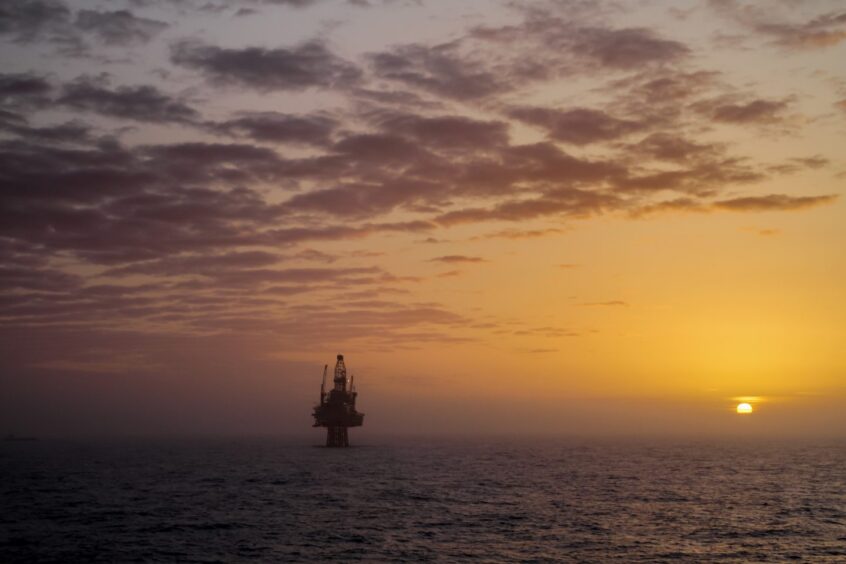
The North Sea regulator has come under fire after the majority of licences from its 32nd round in 2020 were relinquished by oil and gas firms – despite many seeking to keep their acreage.
Out of 90 licences issued in North Sea Transition Authority’s (NSTA) round three years ago, it confirmed that 51 licences have been handed back, or 57%, following a term deadline at the start of December.
A total of 14,700 square kilometres of acreage has now been relinquished to the NSTA.
The issue raises questions around the importance of frequent exploration rounds in the UK, as well as the impact of policy measures like the windfall tax.
It has also drawn criticism of the strategy of the NSTA.
Peter Browning-Stamp, principal geoscientist at Horizon Energy Global said “exploration licensing in the UK is the lowest it’s been in the last 50 years and it’s likely to decline further”.
He added: “License churn is a normal event in exploration and many of the area may have naturally determined due to prospectivity, or other factors but the scale of these events is becoming increasingly shocking.
“This has been unfolding over a number of years, with short-sightedness and a lack of joined up thinking within the uppermost ranks of the UK Regulator.”
Mr Browning-Stamp pointed to a lack of “predictable licensing” in the UK, an unstable tax regime and cited impacts of the lack of consistency in the sector, including its impact on the supply chain.
Crucially, he argues that licence “extensions should be granted when times get tough and a future licence round is out of the line of sight”.
He added: “MER (Maximum Economic Recovery) should be considered in every case. Producing domestic hydrocarbons is beneficial to the UK in terms of emissions, tax and end consumer costs.”
Tom Cafferkey, subsurface team lead at Deltic Energy, joined the discussion by adding: “Licensees wished to retain their acreage.”
Mr Cafferkey commented: “It is also clear that the NSTA worked with many companies to offer extensions where there were extenuating circumstances but the sad truth is the current political ping pong that is the UK Energy Policy has meant that investment decisions stalled and the trickle of farm ins has only just restarted after a dire few years.”
He concluded that the situation is “not good for UK Plc.”
NSTA response
A total of 65 companies were offered acreage in UK waters by the North Sea Transition Authority (NSTA) in the 32nd licencing round.
At the time, the NSTA (then known as the Oil and Gas Authority) confirmed it was taking a temporary pause from annual licence round activity and would not run a round in what would have been the 2020/21 period.
This allowed relinquishments to take place so more coherent areas could be reoffered in future.
The regulator said that this would give the industry time to deliver on work commitments in the existing portfolio of licences.
An NSTA spokesperson said: “In the 32nd Round a large number of licences shared a common Initial Term Phase expiry date, so in these situations when relinquishment activity occurs, it unsurprisingly comes at the same time. ”
The NSTA places milestones for licence activity in order to ensure development.
If these aren’t met, then the regulator can choose not to extend licences; operators cannot sit on these areas without making progress.
The NSTA said: “Many of these licences have benefited previously from flexible licence extensions and other amendments.
“We made special provisions during the Covid-19 pandemic to help licensees who were understandably unable to progress their work programmes as they would have liked.
“However, they have now all had opportunities to retain their licences through committing to the next stage of work requirements and those who were unable to proceed have had to relinquish their licences in accordance with the clear terms set out within these contracts.
“It is important in cases where licensees do not meet their requirements that the licences are relinquished because robust deadlines lead to timely and focussed work, the NSTA is committed to the fair treatment of licensees, and relinquishments allow the opportunity for the acreage to be used effectively by other parties for oil and gas or other purposes.”
Previous relinquishment concerns
Earlier this year Mr Browning-Stamp drew attention to – at the time – five Central North Sea licences that had been relinquished, questioning whether these blocks will “ever be licensed again?”.
However, the handing back of licences is not an unprecedented practice, in 2021 North Sea operators handed back up to 1.1 billion potentially recoverable barrels of oil from UK fields.
Recommended for you

